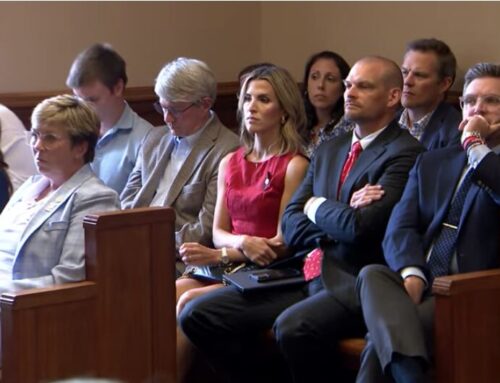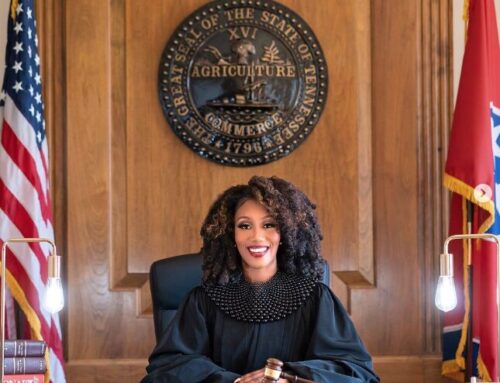Nooga.com: Police body cameras test privacy, transparency
Nooga.com’s reporter David Morton called me recently about the Chattanooga police chief’s concerns about body cameras in Tennessee. His department plans to use them but he’s concerned that the video would be public under the Tennessee Public Records Act.
The issue is headed for some exposure. A summer study committee of the Legislature will be hearing comments on issues surrounding police body cameras the week of Oct. 19 after two bills were introduced last year that would require body cameras in local police departments and make all video from them confidential.
There are some legitimate privacy concerns about the footage, but I urged that we be careful about changing the law to make it all confidential. The purpose of the body cameras is police accountability. If all the footage is allowed to be kept secret or released selectively by police — especially in cases of potential police misconduct or use of force — how would that ensure accountability of local police departments to its citizens?
This is a hot topic across the country, and some states have already passed laws. The ACLU has written a white paper on topic.
Here is an excerpt from Morton’s story, Police body cameras test privacy, transparency:
In the past year, officer-involved deaths in American cities have pushed public opinion overwhelmingly in favor of police body cameras. YouGovfound that 88 percent of Americans favor the idea. A New York Times/CBS survey puts support at 92 percent.
Many local law enforcement agencies have started using them or plan to in the next 12 months.
Stan Allen, assistant chief of police in East Ridge, said no one has requested video since its program launched last month. According to department policy, the footage would be treated like any other police record under Tennessee law.
Redaction of a written report is fairly simple. It involves marking out Social Security numbers, medical information and the names of juveniles. Allen said decisions about video redaction would depend on the content of footage and the nature of the request.
“I don’t know that we even have the capability for editing,” he said. “It just depends on what the request is for.”
Most states’ records laws were written before ubiquitous video recording and small cameras could easily be attached to police uniforms.
A 2014 Police Executive Research Forum study concludes that aside from active investigations and exceptions for privacy, departments should make video available upon request to demonstrate their commitment to transparency.
The American Civil Liberties Union urges policymakers to find ways to minimize invasive recording, especially in people’s homes. It recommends citizen consent to the release of many videos and redaction to protect a person’s identity.
The group says video should be flagged for longer retention periods if it shows the use of force, detention or arrest, or instances where complaints against officers are made. Otherwise, the recordings should be deleted quickly, according to its guidelines on police body cameras.
The ACLU of Tennessee has begun talking to police departments across the state about crafting a model camera policy. But the broader debate will involve many different stakeholders, Executive Director Hedy Weinberg said.
“Striking that balance between privacy, transparency and accountability is difficult,” she said. “Unless you do that, body cameras will not be helpful nor move us forward in creating a just and safe criminal justice system for law enforcement and the public.”
This year, at least 34 states considered new laws related to police body cameras, including video access, according to the National Conference of State Legislatures. South Carolina Gov. Nikki Haley signed a bill in June that exempts video from broad public disclosure.
The technology might be new, but the debate over privacy and transparency is not. Tennessee news outlets face resistance from police over access to incident reports, 911 audio and in-dash video.
“That’s been a tension we’ve dealt with for decades,” said Frank Gibson, public policy director for the Tennessee Press Association.
News media has policies of not identifying victims of sexual assaults, as well as avoiding personal details stemming from domestic violence, he said.
“But if it gets to a point where there are suspicions of official misconduct, there has to be some avenue to make that available,” Gibson said. “We have to find some mechanism that says, ‘This is the line. Media, don’t cross it. Law enforcement, don’t cross it.'”
Deborah Fisher, executive director for the Tennessee Coalition for Open Government, said that in an effort to protect individuals’ privacy, law enforcement agencies are trying to eliminate access to video that’s most consequential to the public—namely, instances of misconduct or the use of lethal force.
“The whole purpose of police body cameras is for accountability,” she said. “Otherwise, it’s just a surveillance tool for police.”
Police departments tend to clamp down when it comes to complaints of officer misconduct, she said. Giving them too much discretion allows them to only release video painting officers in a positive light.
“Even with good police departments and ethical police chiefs, there’s still a reluctance to release public records when one of their officers is suspected of misconduct or misuse of force,” she said.




